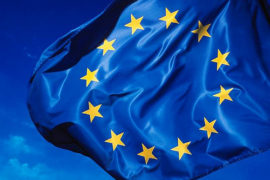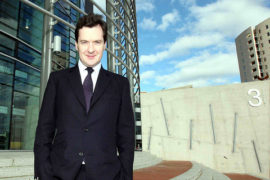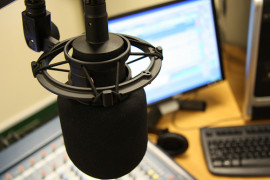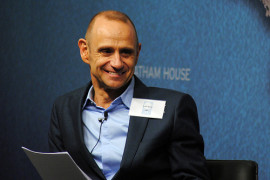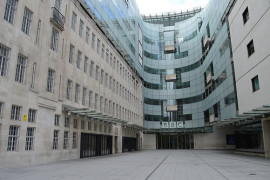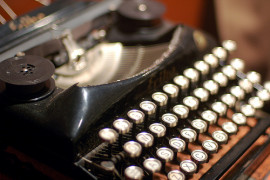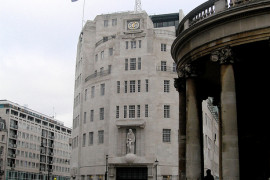News-watch has been carrying out detailed monitoring of news output since mid-January. A large number issues relating to impartiality have been noted, and overall, there is still, despite improvement, significant cause for concern that the ‘exit’ case is not being properly represented.
On the plus side:
There is definitely and clearly an effort to explore the respective ‘leave’ and ‘remain cases. ‘Exit’ guests are appearing in unprecedented numbers, and are often being treated with due respect. Pro-EU politicians such as George Osborne are, on occasions, being subjected to rigorous scrutiny. There is evidence that presenters and correspondents are better briefed on EU issues than in the past, and are challenging the key economic points from positions of real knowledge.
This improved coverage to date underlines just how much the ‘exit’ case had previously been neglected, and its advocates under-represented, denigrated or often ignored.
But:
That said, there are still major issues. All of them are fully evidenced on the News-watch website, and for the sake of economy, the key points are only summarised here.
The BBC has not explored much the issue of the validity or otherwise of David Cameron’s reform package. From the off, website copy suggested it was valid, and there has been no determined exploration of whether it is. This is central to the ‘remain’ case and the absence of scrutiny is bias by omission.
Though some programmes are going off-diary and exploring the roots of the current debate, as yet there has been no obvious effort to investigate critically the full nature of the ‘leave’ movement, and what it represents. Nick Robinson’s survey of the history of the UK-EU relationship was purely through the lens of Westminster Bubble, that is, the leading politicians and the main political friction points. It added nothing new, and if anything served only to reinforce the stereotypes that have characterised the BBC’s coverage of what it calls ‘Europe’ for far too long. Who are those who actually want to leave the EU? They are not simply racists, anti-immigration fanatics, over-zealous ‘populist’ patriots, disaffected Tories, disgruntled fishermen and lazy working class louts who fear foreign competition. What is the ‘leave’ case and what are the historical roots, both inside and outside Parliament? Nothing has yet been done in that terrain, and that’s a glaring omission. Unanswered questions include why the most left-wing, radical Labour leadership in two generations has allied itself with the CBI, the big Banks, and the IMF, and against thousands of its traditional working class supporters in wanting to stay ‘in’. The BBC talks freely and often about the low-hanging fruit of a ‘Tory civil war’, but this debate is about much more – and nothing in the coverage has explored that area in any but a fleeting (and often derogatory) way.
Heavy and increasing weight has been given coverage of those who say ‘Brexit’ will be damaging, such as the IMF, the Treasury and the CBI. Senior BBC political correspondents have reinforced this by suggesting (18/4) that the ‘leave’ side case is ‘cobwebby’ and not fleshed out.
Analysis conducted by News-watch of BBC2’s Newsnight typifies the problem. This covered 40 editions. ‘Exit’ guests were appearing for the first time – a big step forward – but there were still serious inadequacies. The programme has not sufficiently explored the ‘exit’ case, and has routinely given far more prominence to the remain side. There have been fewer ‘exit’ guests, and the imbalance is not accounted for by a tougher treatment of the ‘remain’ side – if anything, the reverse applies. Against this already skewed background, the decision to use the Sealand defence installation as a metaphor for what exit might look like was silly. It skewed the first Newsnight special referendum programme (11/4) strongly against the ‘exit case’. It may have been intended to be a humorous approach, but given the BBC ‘s past track record of denigrating the exit case, it came across instead as a deliberately negative editorial device. On Tuesday night (19/4) the different treatment of Emily Maitlis of her two guests, Pascal Lamy and Lord Owen, underlined the problems in the Newsnight approach. Towards Mr Lamy, she was thoughtfully inquisitorial, and allowed him plenty of space for his answers; towards Lord Owen, she was much sharper, interrupted much more, and scarcely allowed him to respond.
Similar detailed analysis (20 consecutive editions) by News-watch of Radio 4’s 10pm programme, The World Tonight, also highlighted significant impartiality problems. The programme explored the ‘remain’ and exit’ arguments from its more cross-border perspective, and mounted special programmes assessing opinion to the EU debate in Berlin, Spain and France. But most weight was given to the pro-EU perspective in those features. In separate studio interviews, ‘remain’ figures such as Alan Johnson had more opportunity to put their case than ‘exit’ ones.
Since January, News-watch has also analysed a number of referendum-related special programmes, including ones on Greenland’s exit from the EU, Norway’s existence outside the EU, a survey of the EU’s impact on countryside issues (Costing the Earth), and Nick Robinson’s Europe: Them or Us. All of them have shown a distinct bias towards the ‘remain side. Nick Robinson’s description of Winston Churchill as the ‘father of European unity’ stands out as particularly biased because he chose as the bedrock of his programme a provocative historical interpretation that is hotly contested by the ‘leave’ side. The Greenland and Norway programmes particularly over-stressed the difficulties of leaving the EU, and the Costing the Earth programme gave much more space to the ‘remain’ side.
Analysis of Mark Mardell’s reports on World This Weekend is underway. Two editions, one from Portugal and the other from a meeting of The European House think-tank at Lake Como, have already been specially analysed and noted for their pro remain bias. On both occasions, Mark gave significantly less prominence to the respective ‘exit’ spokesmen and gave them less space to answer the points put to them.
Analysis of a strand broadcast on Radio 4’s World at One, by Professor Annand Menon raised serious bias issues. The five three-minute segments (from 12/4) were presented as objective analysis of aspects of EU operations and impacts, but they were anything but. For example, he played down the complexity of the EU’s structure – flying in the face of one of the principal objections of the EU from Eurosceptics.
This brief synopsis of bias is not exhaustive, but gives an overview of some of the key issues.

